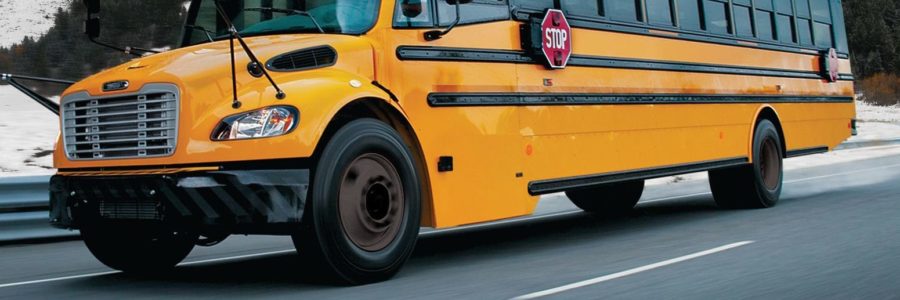
School buses are some of the most common sights across the United States. We’ve long relied on these iconic vehicles and their drivers to get our kids safely to school and back. If you are a Pennsylvania resident and considering a career as a PA school bus driver, you may be curious about the licensing and other requirements needed to make it happen.
Every state is a little bit different when it comes to school bus safety guidelines, equipment guidelines and driver licensing laws. Keep reading for a deeper understanding of what Pennsylvania expects of school bus drivers and their vehicles!
First, it’s useful to know how the state of Pennsylvania defines the term “school bus.” In PA, a school bus is a motor vehicle that meets the following criteria:
Some of the relevant passages in the Pennsylvania Code see revision from time to time. Some examples can be found in Chapter 171:
It should also be noted that school buses are prohibited from transporting passengers for whom there is not enough seating available. Additionally, PA school bus drivers must know and be in possession at all times of a list of approved school bus loading zones along their driving routes.
Wondering about the iconic color known as “National School Bus Glossy Yellow”? The National Highway Traffic Safety Administration indicates that states can choose their own methods for identifying school buses. Nevertheless, the NHTSA strongly encourages states to adopt these voluntary federal guidelines and the official School Bus Yellow color.
According to the Pennsylvania Department of Transportation, the licensing requirements for becoming a school bus driver — or maintaining an existing license — are fairly straightforward. Aspiring PA school bus drivers must:
In addition to keeping these PA school bus licensing requirements current, PA school bus laws also require that drivers keep the following documents on their person at all times while behind the wheel of a school bus:
These PA school bus driver requirements are designed to protect not just the safety of the students aboard the vehicle, but also the driver, pedestrians and other motorists and members of the community.
It should also be noted that bus driver candidates in PA must pass child abuse history checks as well as criminal background checks, both conducted by the PA Department of Public Welfare. When it comes to transporting schoolchildren, good conduct and temperament are just as important as the practical skills involved.
As PennDOT notes, school bus safety is a top priority in the state of Pennsylvania. School bus safety requires that all parties — including school district officials, parents, students, bus drivers and the general public — know what’s expected of them during every interaction with a school bus or its passengers. For instance:
PennDOT also maintains a list of safety tips for PA school bus drivers. These are some of the most important takeaways:
It’s useful to think of bus drivers in PA as members of the school district’s larger safety team! This means in addition to possessing the documentation, licensure, and practical knowledge outlined above, they must also have the right attitude and temperament.
The Pennsylvania State School Bus Driver’s Manual outlines some of the “cultural” elements of the bus driving profession that must accompany all of the subject matter expertise. These include broad ideas like “attitude” (must be able to shrug off other motorists’ poor behavior), mental preparation (must come to work centered and focused), and maintaining a responsibility-focused mindset.
Any organization that needs quality and value in a transportation company should start their own journey at Rohrer Bus. Speak with us today about your van and bus sales, parts, and service needs. If you’re interested in becoming a school bus driver, check out the districts we operate in!
We’re looking for dependable people to join us in Driving the Future Forward! Explore Open Positions